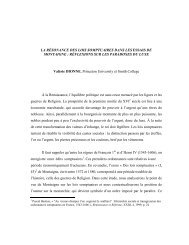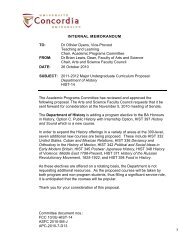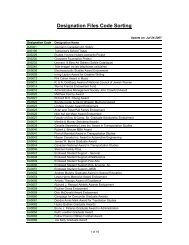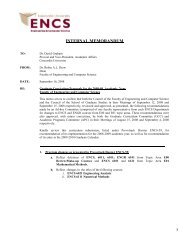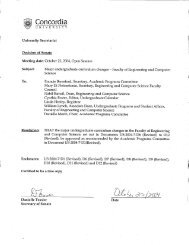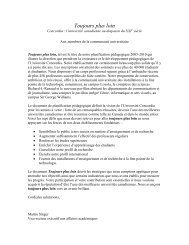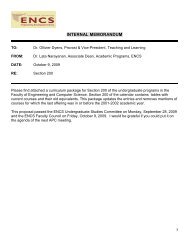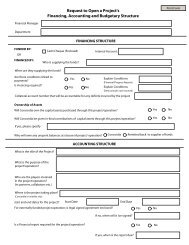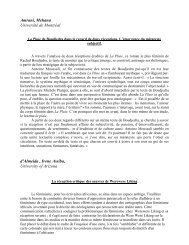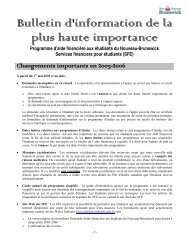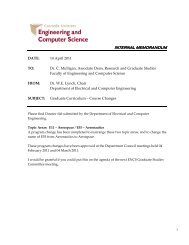Susan Landau-Chark - Concordia University
Susan Landau-Chark - Concordia University
Susan Landau-Chark - Concordia University
You also want an ePaper? Increase the reach of your titles
YUMPU automatically turns print PDFs into web optimized ePapers that Google loves.
12<br />
or a teacher, they should always be addressed by their name; 2) when you knocked on a<br />
door and someone responded ‘Yes” that meant “wait,” and did not mean “enter”; 53 3) one<br />
should not enter a neighbour’s house without announcing oneself; 4) One should not use<br />
indecent expressions even if more words were required to complete the sentence; 5)<br />
when writing and speaking, one should use ‘he and I’, and not not ‘he and he’; one<br />
should do not interrupt when someone is speaking and not monopolize conversation, and,<br />
lastly, one should forget themselves and think of those around them. 54<br />
This basic theme of “derekh eretz” was woven through nearly all thirty-odd years<br />
of sermons on the three parshiot (Bereshit, Noach, and Vayera) that I received. He<br />
further explored these same principles of human happiness, decency and respect in a<br />
sermon on the wife of Abraham’s nephew Lot. Lefell used the image of Lot’s wife’s<br />
“need to look back” upon the destroyed city of Sodom as his springboard for addressing<br />
some of the possible psychological issues that inhibit people from being open (showing<br />
hospitality of the heart) with the “other.” 55 He asked his congregants not to allow<br />
themselves, like Lot’s wife, to be paralyzed by the past - but to move forward - and to be<br />
both open to positive relationships and to engage with others. 56<br />
Rabbi Leffell was ardent in promoting the synagogue’s relationship with the<br />
United Synagogue Movement. Rabbi Leffell’s notes and sermons on the Seminary and<br />
the United Synagogue, his high regard for these institutions and his frequent calls on the<br />
congregation to participate indicate to some extent that he saw himself as creating new<br />
social and religious possibilities through the synagogue’s relationship with the United<br />
53<br />
Ibid. 6.<br />
54<br />
Ibid. 7.<br />
55<br />
Rabbi A. B. Leffell, “Vayera.” (1958): 2-3.<br />
56<br />
Ibid.



